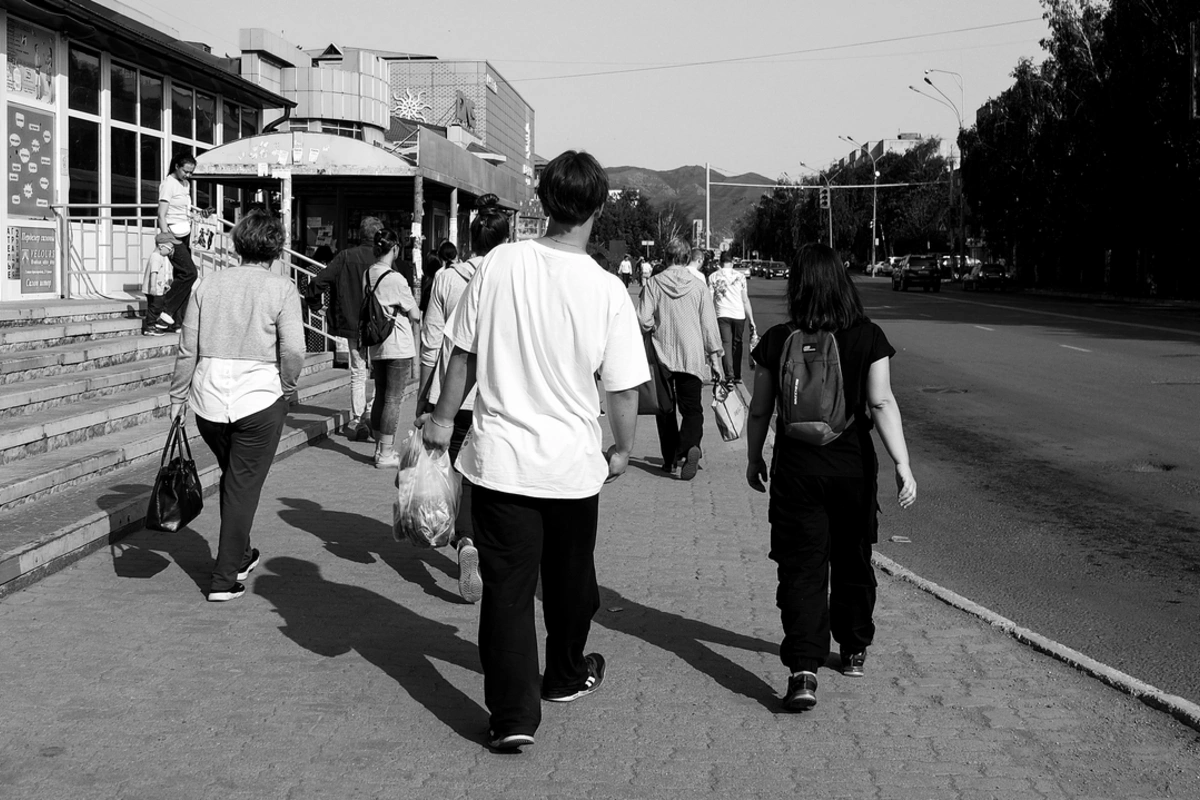
As the first and only LGBTQ-education website for teenagers, SelfTanu.kz, got banned in Kazakhstan, the next day, a group of individuals gathered in Almaty demanding that an anti-LGBTQ law be implemented in Kazakhstan.
Image: Lucky Photographer/Shutterstock
Following Russia’s Supreme Court banning the “LGBT movement” as “extremist” at the end of November 2023, Kazakh far-right activists want to follow suit. At least, that’s how it seems based on the latest news concerning LGBTQ rights in Kazakhstan.
On 12 January, the first and only LGBTQ-education website for teenagers, SelfTanu.kz, was blocked by Kazakhstan’s Ministry of Culture and Information for violating “the norms of the laws of the Republic of Kazakhstan ‘On the Mass Media,’ ‘On the Rights of the Child in the Republic of Kazakhstan,’ ‘On the Protection of Children from Information Harmful to Their Health and Development.’”
On 13 January, SelfTanu’s co-founders Mutali Moskeu and Sasha Kazantseva, together with the human rights activist, expert on digital rights and security and director of the Human Rights Consulting Group Arsen Aubakirov, and women’s rights group Feminita’s co-founder and LGBTQ-activist Zhanar Sekerbayeva held an online press-conference during which they discussed the “censorship” of SelfTanu and how it may further worsen the lives of LGBTQ people in the country.
From the moment the site was launched, threats and DDoS attacks from what they believe are the Russian far-right groups online began to arrive. “They started sending me screenshots from Russian right-wing chats where people were calling to write condemnations on us and to block us,” says Kazantseva. “I’m also a foreign agent of the Russian Federation, so I have an additional pool of right-wing people who are not happy with what I’m doing.”
However, not only Russian far-right groups found the existence of SelfTanu defamatory. There was an indignant part of Kazakhstan’s population as well. Local “conscious parenting organization” Senimen Bolashaq started an online petition a few days after the website’s launch. “To date, up to 4,000 people have signed it. Fortunately, it has not spread much,” Moskeu adds.
Furthermore, the letter from the Ministry of Culture and Information addressed to the hosting platform on which SelfTanu had their domain states, “for the protection of children's rights considers it necessary to limit access to internet resources that disseminate the ideas of the LGBT movement among the Kazakh population, taking into account psycho-age characteristics of children, their vulnerability from the negative influence of the information environment, historical and other traditions, cultural values of Kazakhstani society and the state, as well as for the purpose of proper education and full development of children.”
In reality, SelfTanu is a sex education website for LGBTQ teenagers who, for the first time in Kazakhstan’s history, could find reliable information on “their orientation, gender identity, how to build relationships, and where to find support.” Moskeu further elaborates that this website is important not only for LGBTQ teenagers but also for “parents, teachers, and friends of LGBTQ people.”
“LGBTQ people are a vulnerable group, and LGBTQ teenagers are even more vulnerable. We are millennials, but we were once teenagers and know how hard it was and want to share our experience and validate the experience of today's teenagers,” he adds.
The founders of SelfTanu sincerely believed that due to the lack of anti-LGBTQ laws in Kazakhstan, it “was the most favourable place to start such a project.” Indeed, Kazakhstan decriminalized same-sex sexual activity in 1997, abolishing the ‘Sodomy’ law that the newly independent state inherited from the USSR. Additionally, since 2022, LGBTQ people have been allowed to serve in the military.
“Blocking this site is a direct violation of the right to access information and its free distribution, which amounts to censorship and discrimination. At the same time, it violates the child’s right to receive information, contrary to international standards and national legislation,” the director of Human Rights Consulting Group further stated. “The state contradicts its international obligations, including the UN Convention on the Rights of the Child, which emphasizes the importance of access to information for the social and moral wellbeing of the child.” At the end of the press conference, LGBTQ activists stated that they would challenge the Ministry’s decision in court.
LGBTQ teenagers statistically experience a higher percentage of mental health issues than their heterosexual peers. They are also more likely to become victims of bullying and physical and sexual violence. By blocking a sex education website for teenagers, the Kazakh government further contributes to the lack of help for LGBTQ youth in the country.
However, it seems to be just the beginning of acts aimed at limiting the rights and freedom of expression of the LGBTQ community in Kazakhstan. A week ago, on 7 February, it was announced that the Senate approved the bill to ban LGBTQ people from mentoring orphans in Kazakhstan. The sexual orientation will be determined via a psychological test, Vlast.kz reports.
Additionally, on the same day as LGBTQ activists were holding the press conference, the group of individuals, whom Kazakh media identified as “Zheltoksan participants” (Kazakh: December; refers to the December 1986 protests in Almaty, against Mikhail Gorbachev’s dismissal of the First Secretary of the Communist Party of Kazakhstan, Dinmukhamet Kunayev, and his replacement with Gennady Kolbin), was “performing the ritual of the expulsion of LGBTQ people,” Village Kazakhstan reports. In order to “expel LGBTQ people” they were lightning adyraspan, (Kazakh: peganum harmala) a plant that Kazakhs believe can scare away evil spirits, and demanding the law banning LGBTQ people be adopted in Kazakhstan.
Share on social media